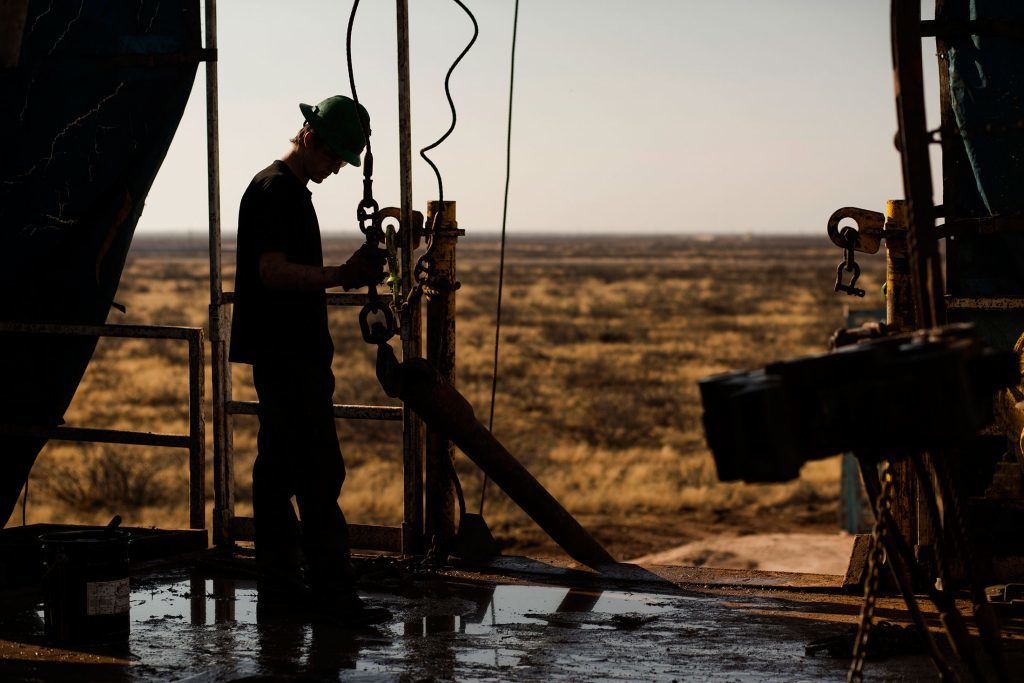
President Donald Trump’s Environmental Protection Agency is asking miners, oil drillers and manufacturers to collaborate with the government on how best to regulate their industries.
The EPA began its new “Smart Sectors” program with an inaugural meeting between agency staff and representatives of its regulated industries on Tuesday and a promise to work together to “develop sensible approaches that better protect the environment and public health.”
The program, modeled after a similar 2003 initiative, follows Trump’s vow to end “job-killing regulations” and comes as the administration moves to revise Obama-era rules governing power plant emissions, methane leaks from oil wells and mining pollution. The meeting convened amid criticism the agency has taken a pro-business tilt at the expense of some environmental issues.
“When we consider American business as a partner, as opposed to an adversary, we can achieve better environmental outcomes,” EPA Administrator Scott Pruitt said in a news release. “When industries and regulators better understand each other, the economy, public, and the environment all benefit.”
Pruitt said the new program, run by EPA’s Office of Policy, “is designed to effectively engage business partners throughout the regulatory process.” The program is set to collaborate with 13 specific sectors, including agriculture, autos, chemical manufacturing, mining, oil and utilities.
Absent from the list: environmental advocates and public health experts.
Why Trump Would Want to Slow Tough Fuel Standards: QuickTake Q&A
The EPA says the initiative’s collaborative approach will lower compliance costs, drive “creative solutions” to environmental challenges, better protect the Earth and increase regulatory certainty.
More than two dozen industry representatives attended the session Tuesday, including representatives from the American Petroleum Institute, the American Iron and Steel Institute and the American Farm Bureau. Participants largely avoided discussing detailed policy matters and instead offered high-level guidance, urging the EPA to streamline permitting processes, better coordinate with other federal agencies and pay attention to the needs of small businesses.
Ross Eisenberg, vice president of energy and resources policy at the National Association of Manufacturers, said the program should encourage “smarter, modernized regulations,” which would boost factory employment.
While the “Smart Sectors” program may be a formal effort for EPA to regularly consult with the industries it regulates, Pruitt has already been conducting that outreach on his own.
Records of Pruitt’s calendar from February through May, just disclosed to the liberal watchdog group American Oversight, show an array of meetings with lobbyists and corporate executives, including representatives of businesses that stand to benefit from the administration’s regulatory rollback. Austin Evers, the group’s executive director, said the new program formalizes Pruitt’s tilt toward industry.
Previous Story: Trump EPA Chief Met Energy CEOs at Trump Hotel Amid Rollback
“The EPA is finally creating an official program to do what Scott Pruitt has been doing behind closed doors for eight months: coordinating closely with the polluting industries that the agency is supposed to be overseeing,” Evers said in an emailed statement. “There’s nothing wrong with the private sector having a seat at the table to discuss the impact of regulations, but they shouldn’t be the only voice in the room.”
Pruitt’s predecessor under former President Barack Obama, Gina McCarthy, met more frequently with environmental groups, though she highlighted efforts to consult with electric utilities and oil companies about regulations governing power plants and drilling.
Although Pruitt’s calendar is dominated by interactions with industry representatives, it includes at least one meeting with a public health group, the American Academy of Pediatrics, and at least two sessions with environmental groups.
“The truth is: EPA has met with over 25 consumer protection, public health and environmental groups,” said agency spokesman Jahan Wilcox in an email.
Recommended for you
